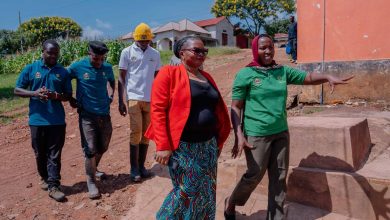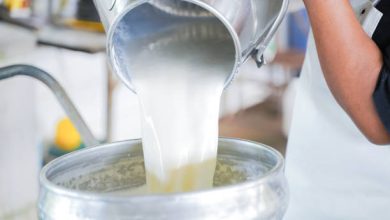Govt to redevelop Msasani Fish Market via PPP

DAR ES SALAAM: THE government plans to redevelop the Msasani Fish Market through a Public Private Partnership (PPP) model, aiming to modernise infrastructure and unlock the market’s full economic potential.
The initiative reflects a broader strategy to leverage private sector expertise and investment in revitalising key urban markets and supporting the blue economy.
According to the PPP Projects Pipeline Report of May this year, the Msasani Fish Market redevelopment valued at 4.1 million US dollars will be executed under a 15-year Design, Build, Finance, Operate, Maintain and Transfer (DBFOM-T) model through a competitive bidding process.
This structure is intended to ensure value for money, efficient project delivery, and long-term sustainability through private sector participation.
The PPPC Director of Projects, Agustino Saibul, told the Daily News yesterday that the initiative aims to transform Msasani Fish Market into a modern commercial hub, positioning it as a key driver of urban economic activity and value addition within the fisheries sector.
“This approach encourages private sector participation by allowing investors to efficiently manage the facility and recover returns before transferring ownership back to the local government,” said Mr Saibul.
He noted that the initial pre-feasibility study launched in 2019 with technical support from the World Bank has been completed. The final feasibility study is expected to be finalised and submitted by December this year.
“We are now progressing toward completing the detailed feasibility study to ensure the project is both successful and sustainable,” he added.
ALSO READ: Digital loans surge 80 per cent with mobile convenience
The redevelopment aims to overhaul the existing fish market infrastructure by introducing modern storage and cold-chain facilities to enhance hygiene, safety and preservation.
The upgraded market will also feature dedicated commercial spaces to support small and medium enterprises involved in fish processing and related businesses.
Mr Saibul emphasised that this holistic approach is expected to boost the local economy by improving operational efficiency, reducing post-harvest losses and attracting more consumers to the market.
“This redevelopment project is crucial for stimulating local commerce and job creation,” he said.
“We envision a fish market that not only facilitates trade but also contributes to broader economic activity and improved livelihoods in the community.” PPPC Executive Director, Mr David Kafulila, underscored the project’s strategic importance in mobilising private investment through structured PPP frameworks.
“PPP projects are a strategic tool for attracting capital investment into infrastructure,” he said.
“They represent a critical step in promoting partnerships that leverage private sector expertise and funding to deliver quality public services.” The DBFOM-T (Design, Build, Finance, Operate, Maintain and Transfer) model under which the Msasani project will be implemented is relatively new in Tanzania’s local government context.
However, it is increasingly seen as an effective mechanism for ensuring longterm accountability and high service standards.
By involving the private sector in both delivery and maintenance, the model incentivises performance and ensures that the community benefits from reliable, efficient and sustainable services over the project lifecycle.
Kinondoni Municipal Council, which oversees the market, is optimistic about the project’s potential to enhance urban infrastructure while directly supporting the livelihoods of hundreds of fishermen, traders and small business owners who rely on the market daily.
A seasoned fish vendor at Msasani Market, Ms Pulkeria Kasanga expressed strong optimism about the planned redevelopment.
“The current facilities are outdated and often compromise the quality and freshness of our fish,” she said.
“The introduction of modern infrastructure, better storage and cleaner spaces will significantly improve product quality and help attract more customers.” She also highlighted the positive impact the upgrades will have on working conditions.
With a more spacious, hygienic and secure environment, the market will become more appealing for both vendors and buyers.
“These improvements will likely encourage more traders to participate, creating healthy competition and better pricing for everyone involved,” Ms Kasanga added.
Looking ahead, she expressed confidence that the revitalised market will serve as a catalyst for local economic growth and improved livelihoods in Msasani.





